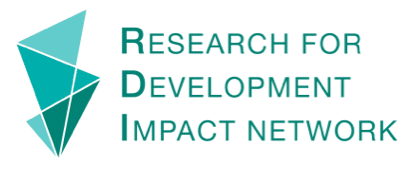Monitoring and evaluation (M&E) is key to tracking, improving and communicating development work. But how you design and conduct M&E will depend on whether you are conducting a project, research or advocacy, the scale of your work and whether you engage external evaluators, and even what kind of knowledge is sought, and the values you engender in the process. Here are a few approaches to guide your M&E.
- A Guide to MEALDPro – Monitoring, Evaluation, Accountability and Learning for Development Professionals (PDF 3.49MB, 4 hours, manual)
This guide provides advice on how to incorporate monitoring, evaluation, accountability and learning (MEAL) when designing, planning and implementing projects. It provides practical knowledge and tools for each step of the project management cycle from designing logic models, to planning MEAL activities, and collecting, analyzing and using data. A single case study is used throughout, which helps illustrate processes and methods such as logical frameworks and performance management plans and how each ties together.
- Action and reflection: a guide for monitoring and evaluating participatory research (PDF 377KB, 90 mins)
Designed for research and development projects that use a participatory research methodology, this guide asks researchers to consider the who, what, where, when, why and how of evaluation. It accompanies these considerations with guiding questions, tools and resources to put research evaluation into practice.
- Narrative Assessment: A new approach to advocacy, monitoring, evaluation, learning and communication (PDF 3.86MB, 90 mins, manual)
Advocacy presents its own distinct challenges for monitoring and evaluation. It can be hard to capture the work that advocates do and capture its impact. Narrative assessment is a systematic approach that focuses on the dynamics of the advocate’s environment, identifies challenges and how advocates respond, and validates claims. Facilitators are guided on how to prepare and conduct interview with advocates, distill stories and apply insights to learning and communication.
- Manager’s guide to evaluation (Website, 1 hour)
This interactive guide is focused on managing evaluation. It provides managers with practical information to guide decision making at each step of the process. This includes an extensive list of approaches to evaluation, developing Terms of References (ToR) for evaluators, and managing the design, work plan, logistics and implementation of evaluation. It also guides how to produce and disseminate quality reports.
- Guidelines and Checklist for Constructivists (aka Fourth Generation Evaluation) (PDF 174KB, 20 mins, checklist )
This approach evaluates processes, programs and organizations according to how they are understood by their stakeholders with the aim of initiating socially sensitive, usefuly and utilized solutions. This checklist provides guidance on drafting an evaluator agreement, the iterative process of negotiating and developing common understandings within and between stakeholder groups, producing outputs in the form of case study reports, and assessing the evaluation itself.
- Deliberative Democratic Evaluation Checklist (PDF 164KB, 5 mins, checklist)
A deliberative democratic approach to evaluation aims to construct valid conclusions where there are conflicting views. This checklist guides evaluators on how to impartially include relevant interests while still assessing these claims through sound data collection and analysis. The guiding principles for incorporating democratic processes are described, along with a checklist for evaluators to ensure they are implemented.
Photo by Kelly Sikkema on Unsplash



